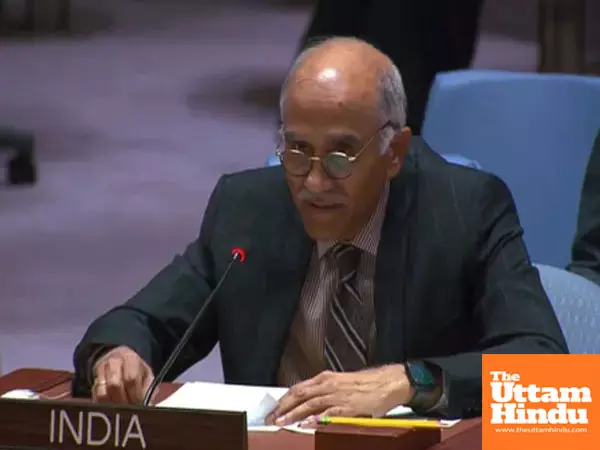
United Nations (The Uttam Hindu): India strongly criticized Pakistan, which leads the Security Council committee on sanctions against the Taliban and co-chairs the counter-terrorism panel.
Taking aim at Pakistan, India's Permanent Representative P. Harish said in a debate on the functioning of the Council on Friday that Council members should be prevented from chairing committees with vested interests.
He said there can be no room for conflicts of interest on the Council. Pakistan is a two-year elected member of the Council. P. Harish targeted Pakistan, the Taliban Sanctions Committee, or the Counter-Terrorism Committee without naming them.
It is known as the 1988 Committee, after the number of the resolution establishing the committee. This committee has the authority to impose travel restrictions on Taliban members. It was this committee that delayed the visit of Afghan Foreign Minister Amir Khan Muttaqi to India.
It is worth noting that Pakistan is currently embroiled in a conflict with Taliban-led Afghanistan. There have been clashes between the armies of the two countries along the border. Pakistan co-chairs the Counter-Terrorism Committee and also provides safe haven to several terrorist groups and leaders.
Pakistan harbors terrorist groups and leaders, many of whom are proscribed by the United Nations. Regarding this, P. Harish said, “The selection of chairpersons and panelists of subsidiary bodies should be conducted in a more transparent, fair, and timely manner.”
Subsidiary bodies are committees of the Council that impose sanctions or deal with specific issues. Penholders are Council members assigned primary responsibilities for certain countries and issues.
Harish also called for the removal of secrecy surrounding the functioning of the Security Council's counter-terrorism committees and the selection of their chairpersons. He said, "There should be greater transparency in the functioning of subsidiary bodies." He pointed out that decisions to reject requests to impose sanctions on terrorists or terrorist organizations are made in secret.
